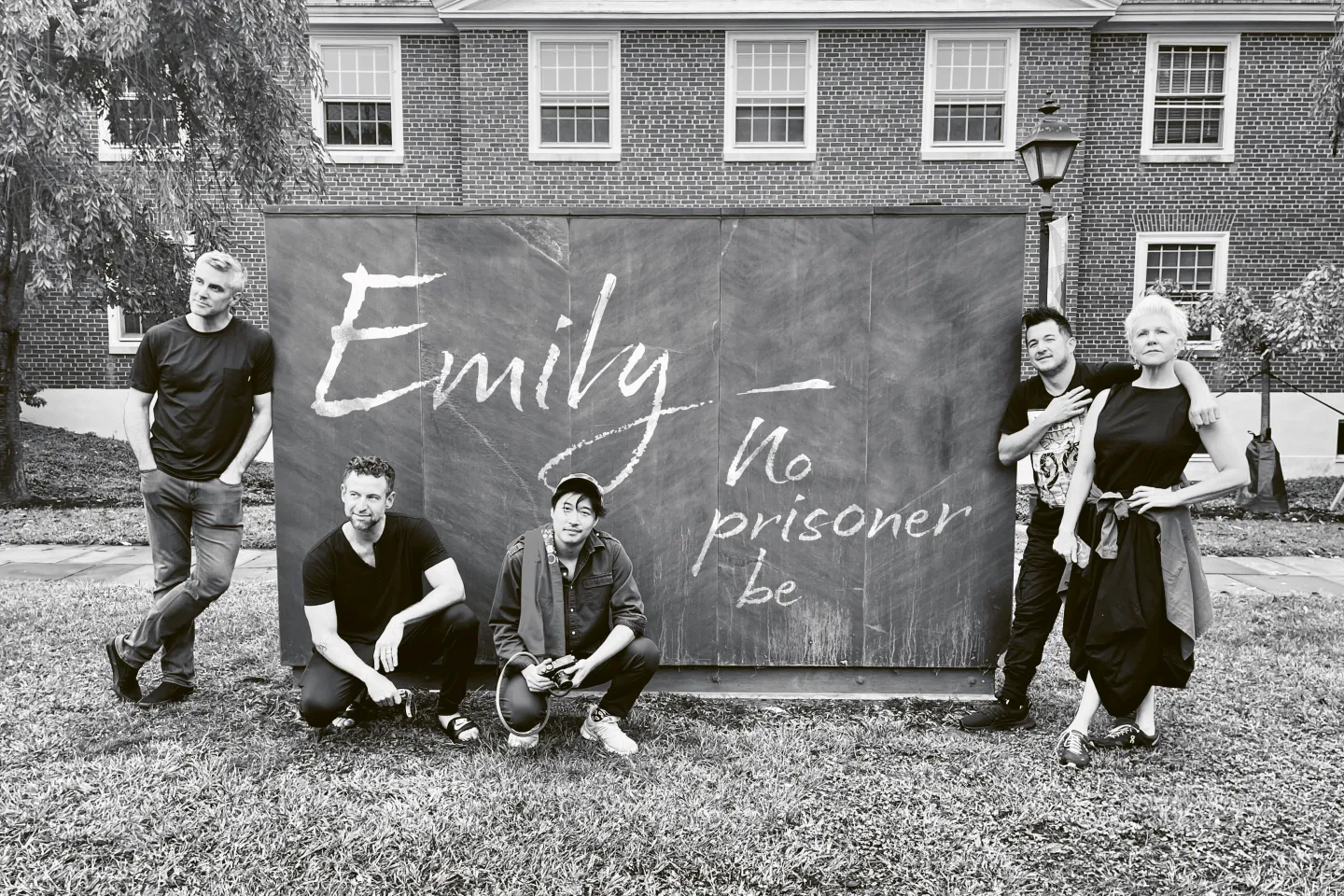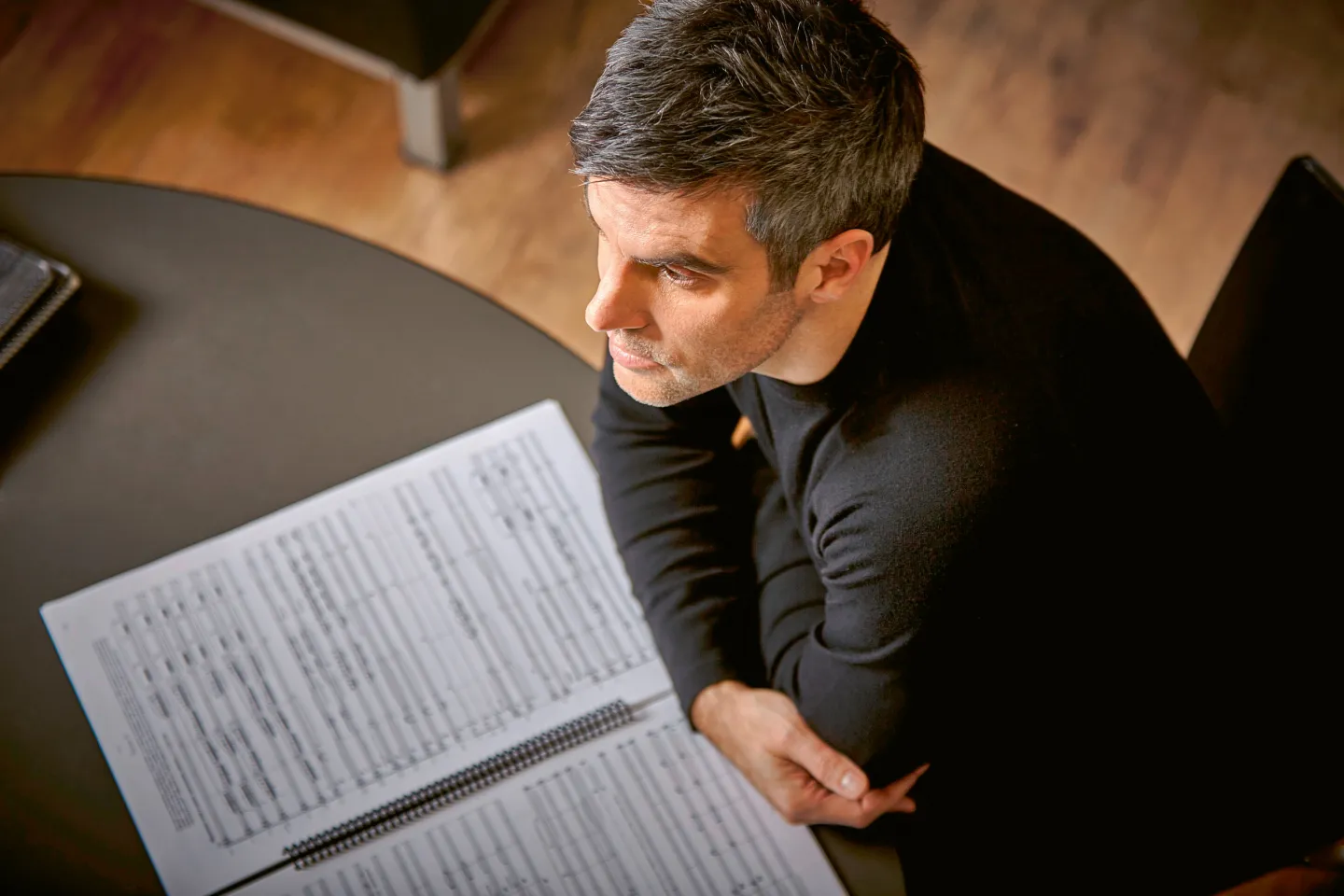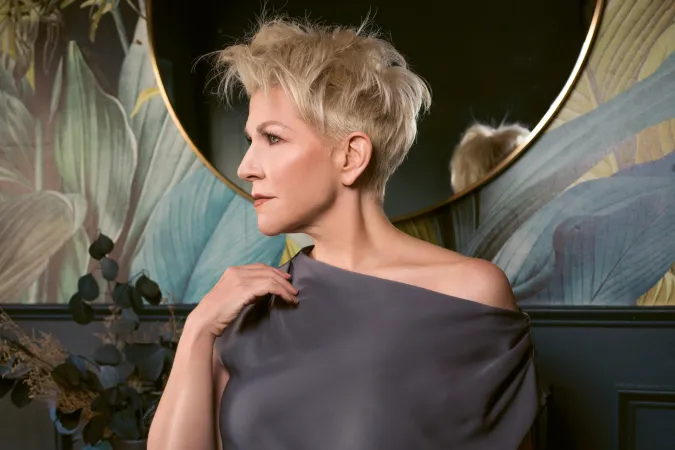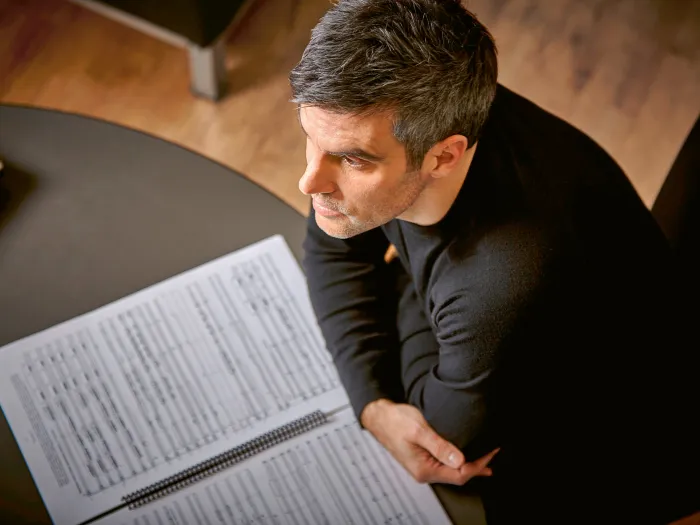Text: Sophia Gustorff
The text was published in edition 2 (03/25).
Reading time 4 Min.
No Prisoner Be – Emily Dickinson unleashed
Emily Dickinson’s poetry breaks boundaries – and now even musical conventions. Kevin Puts sets the explosive power of her poetic world to music in a new song cycle for the Bregenzer Festspiele. Together with star mezzo-soprano Joyce DiDonato and the energetic trio Time for Three he brings Dickinson’s rebellious spirit to life – sometimes powerfully virtuosic and sometimes delicate and fragile.

Behind every phrase, every word waits a tight curve that sometimes leads into the sky and sometimes into the abyss. Sudden pauses in between, marked by dashes, shake us up. An abrupt halt follows with the last word at the end. Emily Dickinson’s poems are just like a virtual rollercoaster ride with unexpected turns. They lead into the depths of the soul, nature and society. They tell us about agony and luck, truth and love, faith, doubts and success, sincere, biting, devasted and superior. In the concentrated form of a few words, they evoke images and fantasies that want to be carefully inspected and have a long-lasting effect, so modern, as if they had just been written.
Emily Dickinson is one of the most important poets. During her lifetime however, her reputation was still very much limited to the US province around Amherst, the small town in the state of Massachusetts, where she was born in 1830. There, she spent her whole life. At the age of almost 30 she retreated into her childhood home, for self-protection but also to satisfy a burning desire: to write in peace.
Dickinson had confidence in herself as an author. Nevertheless, only a handful of her poems were actually printed. Her father, a lawyer and politician, was partly responsible for this. He offered his highly gifted daughter a carefree and intimate family life. However, he stood in the way of publishing her sometimes socially critical verses. When Dickinson died in 1886 at the age of 55, she left 1,800 poems behind.
Her poetry and overall impact fascinate the world up to this day – and remain highly relevant. Dickinson rebelled against social norms. Even when she was still a child, she was rather locked in the cellar than going to church. In her famous poem “They shut me up in Prose” she sarcastically comments that: “They might as wise have lodged a Bird / For treason – in the Pound.” Her poetry is one of opposition, of saying no, an ability that is preached in every personality coaching today. It is no wonder that even Taylor Swift and Netflix have recently discovered the extraordinary icon for themselves.

The US-American composer Kevin Puts, awarded with the Pulitzer-Prize for Music, multiple Grammy winner Joyce DiDonato and Time for Three, a trio that defies all musical conventions, look at Emily Dickinson’s poetry from a new perspective.
“For her, poetry means freedom,” summarizes the composer and Pulitzer-Prize winner Kevin Puts. On behalf of the Bregenzer Festspiele he has written a new song cycle based on Dickinson’s poems. From the start, the composition project was intended to be a collaboration with outstanding performers: the star mezzo-soprano Joyce DiDonato and the string trio Time for Three. Kevin Puts already worked together with both in the past. “Their personalities and energy, their musical flexibility and their team spirit motivated me”, he reports. “I thought to myself: something good has to come out of it”
I didn’t hesitate a second to sing this song cycle.
Joyce DiDonato reacted enthusiastically. In 2022, she had a role in the scenic world premiere of Kevin Puts’ opera The Hours at the Metropolitan Opera in New York. That is when they started talking. “I didn’t I hesitate a second to sing this song cycle,” she tells us. “The very first solo CD that I recorded more than 20 years ago included the Twelve Poems of Emily Dickinson by Aaron Copland. When I discovered Dickinson at that time, a whole new world opened to me. The new project with Kevin was my chance to get to know her from a new perspective.”
The musicians of Time for Three are exceptional performers as well. The trio, that has won the Grammy Award for its newest solo album Letters for the Future, stands for a powerful, electrifying, rock sound. And one more special quality: The musicians, two violinists and one double bass player, can also sing. Puts uses both in his songs. “I immediately had this extraordinary energy in my head,” he says about the first song after the poem “They shut me up in Prose”. It starts with the “shredding virtuosity” of the string players. The “rock vibes” played an important role for Puts, as well as the “background gospel choir”: “It is almost like having three additional singers next to Joyce who also play their instruments while singing.”, Puts describes.
The musicians made many artistic decisions together, both on a large scale and in detail. DiDonato saw this process as a big enrichment: “That was the most exciting work that I have ever done in a rehearsal room. The days that we spent together to create all of this were as if we won the lottery. Everyone was in their element; everyone was on fire.”
The cycle consists of 24 poems, including Franz Schubert’s Winterreise. Every single poem describes an “individual universe,” says DiDonato. The music sets impulsive accents, as with the opener “They shut me up in Prose”. Sometimes it seems fragile, like the poem that follows: “I was the slightest in the house”.
Melancholy and grief also play a role in the emotional spectrum, for example in the song “I Felt a Funeral”. The title song “No Prisoner be” brings the journey full circle, returning to the explosive start : “No Prisoner be -/ Where Liberty - / Himself – abide with Thee”. The focus is always on the poet’s lyrical I. “You get a fascinating portrait of her explosive spirit,” DiDonato enthuses. Together with Time for Three she will make sure that the performance at the world premiere will be just as explosive. Power guaranteed.





